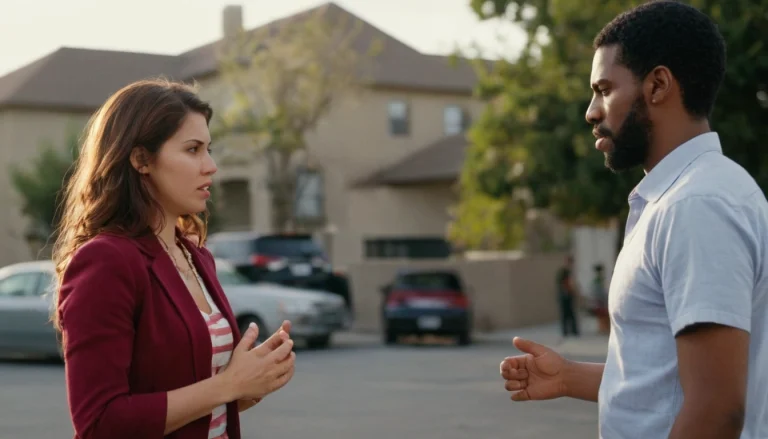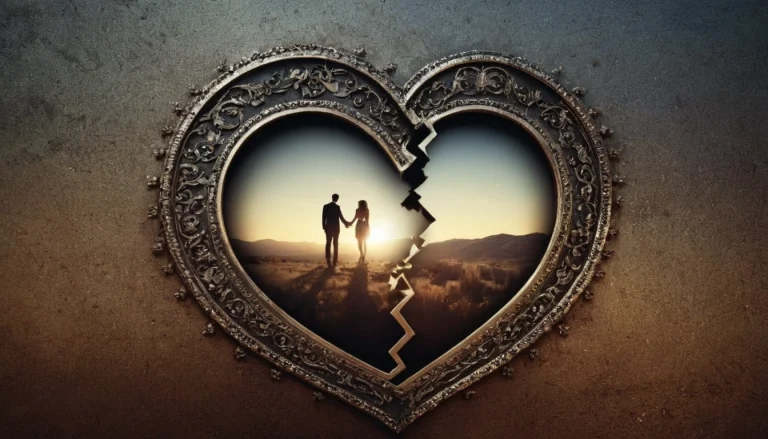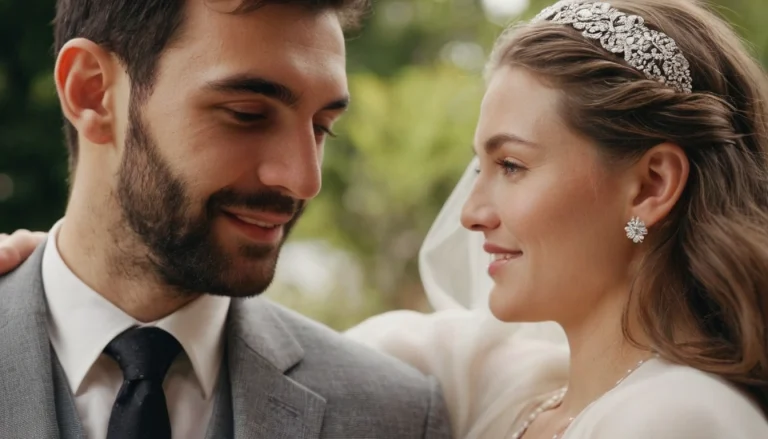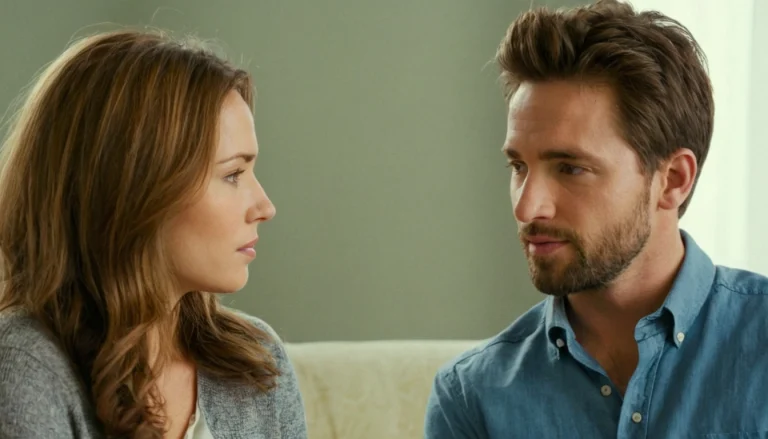Has He Fallen out of Love, or Is He Just Tired?
We’ve all been there—wondering if the spark is gone or if our partner is just going through a rough patch. Relationships go through ups and downs, and sometimes, what feels like fading love is actually something else entirely—stress, emotional exhaustion, or even unspoken worries. But how do you tell the difference? And more importantly, what should you do if you find yourself in this situation?
The truth is, relationships aren’t always full of passion and excitement. Life happens, stress builds up, and routines take over. It’s easy to misinterpret distance as loss of love. That’s why real-life examples can help—because chances are, someone else has been through something similar. Sharing stories, hearing different perspectives, and reflecting on your own situation can provide clarity. After all, love isn’t just about feelings; it’s about actions, communication, and understanding. Let’s dive into some real-life stories that might just give you the answers you’re looking for.
The Relationship Just Feels Different
Mia, 34, in a six-year relationship. “Nothing is wrong, but everything feels off. We don’t fight, we don’t have big problems, but we’re just… existing. It’s like we’re roommates instead of partners.”
She tried bringing it up gently. “Do you feel like we’ve changed?”
Jason glanced at her. “Of course, we have. We’ve been together for years. It’s normal.”
“But doesn’t it bother you? I miss the excitement. I miss feeling… in love.”
Jason sighed. “I do too, but I don’t know how to get it back.”
Psychologist’s Insight
Long-term relationships naturally evolve, and the initial passion may settle into something quieter. Instead of fearing the change, focus on creating new experiences together and keeping emotional intimacy alive. Routine is comforting, but too much of it can lead to emotional stagnation.
Mia suggested a weekend away. Jason hesitated but agreed. Out of their routine, they laughed, talked, and held hands like they used to. It wasn’t exactly the same as before, but it was something new—something worth holding on to.
When Distance Turns to Resentment
Emma, 29, in a three-year relationship. “He used to light up when I walked in the room. Now he barely looks up. I try to talk, and he just nods or mumbles. I feel invisible.”
One night, after another failed attempt at conversation, Emma snapped.
“Do you even care anymore?”
Liam looked annoyed. “Why do you always do this?”
“Do what? Ask for basic attention?”
“No, make everything a problem. I’m exhausted, Emma. I don’t have the energy for this.”
Psychologist’s Insight
Sometimes, the more we push, the further someone pulls away. Constant pressure can turn distance into resentment, making real communication impossible. Taking a step back can sometimes be more effective than pushing forward.
Emma didn’t step back. Instead, she kept pushing, hoping for an answer that never came. The more she tried to bridge the gap, the more Liam withdrew. Until one evening, after another tense conversation, he sighed and said, “I don’t think this is working anymore.”
The breakup was painful, but with time, Emma realized that love shouldn’t feel like a constant fight for attention. She learned to recognize when distance is just a phase—and when it’s a sign of something deeper. Therapy helped her process the resentment and rebuild her confidence. Looking back, she wished she had focused less on demanding love and more on understanding whether it was still there in the first place.
If you’ve ever felt like Emma, you might find this article helpful: Something Feels Off in My Relationship – What Should I Do?
When Silence Becomes Indifference
Julia, 35, married for seven years. “At some point, we stopped talking. We stopped laughing. We became polite strangers.” She tried to reconnect—date nights, heartfelt texts—but nothing changed.
“Do you still love me?” she finally asked.
Her husband’s response was cold: “I don’t know.”
Psychologist’s Insight
Love needs nurturing. If both partners aren’t invested in keeping the connection alive, even the strongest relationships can wither. Sometimes, letting go is the healthiest option. Staying in a relationship where love is one-sided can be emotionally damaging.
Julia held on too long. She hoped, she begged, she compromised—but in the end, love that isn’t reciprocated isn’t love at all. And they separated. Julia loved her husband, but he no longer loved her. If you find yourself in a similar situation, it might help to read How Do You Know When a Relationship Is Over?
He Barely Talks to Me Anymore
Anna, 32, in a five-year relationship. “At the beginning, we couldn’t stop talking. He would text me just to say he missed me. Now? Silence. Even when we’re together, he barely looks up from his laptop. I tried asking him about it, but all I get is a sigh and ‘I’m just tired.’ Tired of what? Me?”
One night, after another quiet dinner, Anna couldn’t take it anymore.
“Mark, do you even want to be here?” she asked, voice shaking.
He looked up, surprised. “Of course, I do. Why would you ask that?”
“Because you barely talk to me! I feel like a stranger in my own home.”
Mark rubbed his face. “I’m just overwhelmed. Work has been brutal, and I feel drained all the time. It’s not you.”
Psychologist’s Insight
From a relationship psychology perspective, when life gets stressful, some people withdraw instead of communicating. It’s not necessarily about losing love, but rather about how they handle stress. Instead of assuming, talk to him when he’s relaxed. Express how you feel without blame and ask how he’s truly doing. Pressuring someone who’s already overwhelmed can make things worse.
Taking this advice, Anna waited for a calmer moment. She made his favorite tea and said, “I miss you. I don’t want to add pressure, but I just need to know what’s going on.”
Mark sighed but squeezed her hand. “I’m sorry. I’ll try to be more present.” They agreed on 30 minutes every night just for them—no screens, no distractions. Slowly, the warmth between them returned. If Anna hadn’t approached the situation with understanding, Mark might have felt even more pressured, leading to deeper emotional distance.
He Stopped Saying ‘I Love You’
Sophie, 30, dating for two years. “He used to say it all the time. Now? Nothing. When I asked why, he just shrugged and said, ‘You already know I love you. Why do I have to say it?’ But I need to hear it. Am I asking for too much?”
Sophie tried to ignore it, but the doubt kept creeping in. One evening, while watching TV, she turned to Daniel.
“Do you still love me?” she blurted out.
He raised an eyebrow. “Of course, I do. What’s wrong?”
“You never say it anymore. It makes me feel… uncertain.”
Daniel sighed. “I show it in other ways. I make your coffee every morning, don’t I? I fix things around the house. Isn’t that love?”
Psychologist’s Insight
People express love in different ways, and some don’t realize how much words mean to their partner. Instead of expecting him to change overnight, recognize how he does show love—through actions, support, or small gestures. If words are important to you, communicate that without making him feel inadequate.
After their conversation, Sophie tried to notice the little things: how he always saved her the last piece of cake, how he made sure her car was filled with gas. It wasn’t the same as hearing ‘I love you,’ but it was something. Seeing her efforts, Daniel started making an effort, too. One morning, as she left for work, he pulled her in and whispered, “I love you.” It wasn’t perfect, but it was progress. Without this conversation, Sophie’s resentment could have built up, leading to emotional distance between them.
Love Has Faded…
Zoe, 41, married for over a decade. The company’s anniversary party should have been just another work event. But as Zoe watched her colleagues with their partners, something unsettled her. Jane and Walter, in particular—they looked effortlessly happy. Jane glowed, and Walter was the kind of attentive, charming man that made everyone take notes.
Later that night, lying in bed alone, Zoe couldn’t shake the feeling. She didn’t bring it up to Harry (her husband) —not the next morning, not the day after. She kept waiting for the right words, the right moment. It never came.
Then, life threw a twist—Zoe was sent on a short business trip. With Jane.
Jane was warm, sharp, and disarmingly easy to talk to. The work was wrapped up in a day, and with the evening free, she suggested martinis by the hotel pool. Zoe didn’t hesitate.
Psychologist’s Advice
Seeing love and romance in others can highlight what we feel is missing in our own relationship. But before assuming love has faded, ask yourself: Have I truly expressed what I need? Try an open conversation with your partner—without blame, just honesty. Sometimes, the spark isn’t gone; it just needs attention.
They talked about everything. Life. Careers. Love. Jane even mentioned Harry, casually, kindly. Zoe smiled, but something inside her ached.
The next morning, Jane called and suggested fresh orange juice to recover from the martinis. It was exactly what Zoe needed. The juice was cold, sweet, and oddly restorative.
Remembering Jane’s praise for Harry, Zoe decided to return the compliment. “Your Walter was so incredible on that party —so charming, so attentive. He put every other guy in the room to shame.”
Jane smirked. “Oh, please. If he ever gets too full of himself, I’ll take his car keys and cancel his gym membership.”
It hit Zoe like a cold shower. The magic she had projected onto Jane and Walter wasn’t real. It was just another version of what she already had. And suddenly, for the first time in days, she felt relief. Maybe there was no perfect moment to talk to Harry. Maybe she didn’t even need to.
Psychologist’s Take
It’s easy to believe other couples have something we’re missing. But often, we’re comparing our everyday reality to someone else’s best moments. Instead of waiting for the “right” conversation, ask yourself: What do I actually want? Sometimes, the answer isn’t to fix anything—it’s just to see what’s already there.
Final Thoughts
Not all distance means the end of love, but sometimes it does. Understanding the difference is key. Have you experienced something similar? How did you handle it? Share your story—because sometimes, talking about it is the first step to figuring it out.
Recommended Reading
If you see yourself in Emma’s story, know that you’re not alone. Relationships are complex, and sometimes, distance and resentment creep in before we even realize it. Whether you’re trying to rebuild a connection or simply understand the dynamics of love and attachment, these books can offer valuable insights:
“Attached” by Amir Levine and Rachel Heller – Why do some people crave closeness while others push it away? This book dives into attachment theory and explains how our childhood experiences shape the way we love as adults. If you’ve ever struggled with emotional distance in relationships, this book will help you understand why—and what you can do about it.
“Hold Me Tight” by Dr. Sue Johnson – Love isn’t just about attraction; it’s about emotional safety. This book introduces Emotionally Focused Therapy (EFT), a method that helps couples strengthen their bond by understanding their emotional needs. It’s an essential read for anyone who wants to move beyond surface-level conflicts and build deeper, lasting intimacy.
“The 5 Love Languages” by Gary Chapman – Ever felt like you’re speaking a different language from your partner? This book explores how people express and receive love in different ways—words of affirmation, quality time, acts of service, physical touch, and gifts. Understanding your love language (and your partner’s) can help you bridge emotional gaps and reconnect.
If you’re feeling lost in your relationship, these books can provide clarity, comfort, and real strategies to help you navigate love’s ups and downs. And remember, sometimes the best thing you can do is reach out—whether to a trusted friend, a professional, or even just someone who understands.








This reminded me of my friend – just like Sophie in the story, she kept pushing her husband about not saying ‘I love you’ enough. She got so fixated on it that he moved into a separate apartment. Later, she found out he was drowning in work problems, and her constant pressure only made things worse. They ended up divorcing. Sometimes, it’s not about love fading – it’s about giving the other person space to breathe.
That’s really sad, but also a powerful reminder that sometimes we focus on the wrong things. Giving space and understanding can be just as important as hearing ‘I love you.’
I don’t find it sad. To me, it’s just stupid. My question to the guy—what was he thinking when he got married?